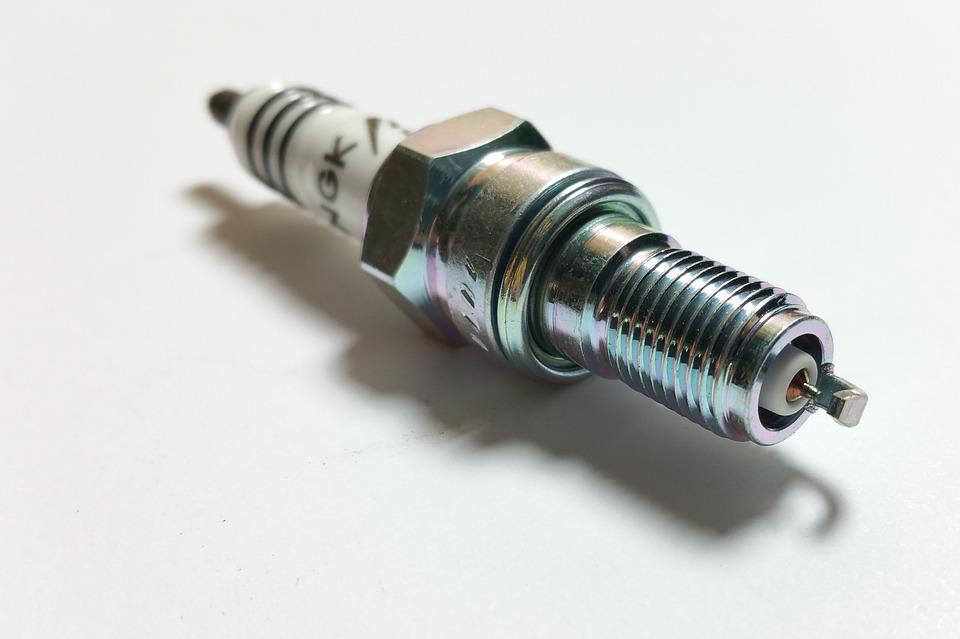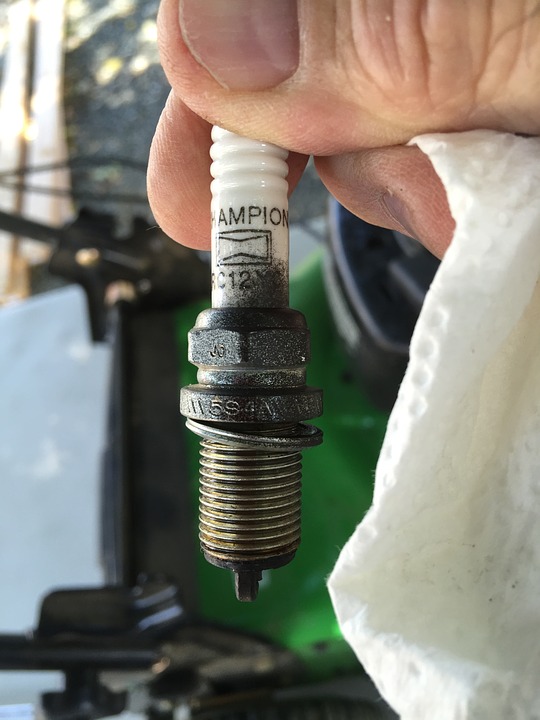Insights
Why do my spark plugs keep getting dirty?
May 16, 2022

Fouled Spark Plugs
Have you ever wondered why your car may be having trouble starting cold or is constantly misfiring only to open the bonnet and find your spark plugs extremely dirty? When a spark plug becomes dirty, they cease to operate correctly and can become faulty, damaged or fouled.
Essentially, over time spark plugs become too worn or dirty to function properly as fuel and carbon layer onto it in quantities that prevent it from firing proficiently.
What Do Spark Plugs Do?
Think of a spark plug as a tiny little jolt of lighting that wakes up an engine so it can ignite, combust and start the car. This small spark of electricity within the car ignition and combustion chamber is to spark the car to life and sustain this power to produce a smooth burn of air and fuel mixture.
Specifically, these plugs ignite the air and fuel mixture within the combustion chamber to ensure the engine has enough power to start the vehicle. After being lit, the spark plugs do not retain this power but transmit the heat away from the combustion chamber and to the cylinder head to ensure the vehicle runs consistently. Spark plugs are extremely durable and can withstand high heats and corrosive liquids that are common within a car's engine.
Where Are Spark Plugs Located
Spark plugs are located at the end of the ignition leads, within an engine, and are connected to the fuel system. The amount of spark plugs a car needs is dependent on the amount of cylinders within a car engine, in a 4-cylinder engine, you will need four and they are located on the top or side of the engine. However, in an inline 6-cylinder engine, they are located on the top or side of the engine walls or head.
What Is A Fouled Spark Plug?
A fouled or faulty spark plug occurs when a plug becomes covered with a substance like fuel, engine oil or carbon that has become blistered or corroded from aggregating too much heat.
Fouled spark plugs commonly cause issues with cold starting, misfires during acceleration, rough idling, difficulty sustaining power and reduced fuel economy.
Worn Or Damaged Valve Guides, Valve Stem Seals, Engine Cylinders Or Piston Rings
Worn piston rings, seals or engine cylinder walls can allow oil to seep into the combustion chamber and foul the spark plugs inside. Leaking piston rings or valve seals allows for loose oil droplets and other contaminants to slowly corrode the plugs.
Rich Fuel Mixture
Sometimes, a spark plug can appear to have black fluffy deposits. These dark spots are heavy dry carbon fouling and are most likely caused by too much fuel pressure or an underlying fuel injector issue. A defective O2 sensor (oxygen sensor) could be the cause of a vehicle's fuel mixture running rich. Checking the fuel trim with a scan tool can pinpoint this issue.
Leaking Intake Manifold Or Head Gasket
A fouled spark plug is an early sign that a car's head gasket is becoming worn or leaking. A spark plug becomes fouled when internal coolant leaks into the combustion chamber from the head gasket which can create deposits on the plug. Burned coolant leaves ashy colouring and deposits on the plug that is indicative of a coolant leak.
A head gasket or radiator sealer is a quick fix to this problem, however, it will not always be extremely reliable.
Wet Spark Plugs
Wet fouled spark plugs are usually coated in unburned fuel or oil which can cause the ignition voltage to short circuit. Spark plugs fail sooner when they are wet which can be caused by flooding in the engine when attempting to cold start a car or when consistently driving slowly or idling.
Problems with the ignition, including faulty ignition leads, can cause misfiring and wet spark plugs. The best way to fix this issue is to wait it out and try starting the engine again later.
What Causes Spark Plugs To Foul Quickly?
Spark plugs clean themselves and have been designed to do this up to a certain point. The ceramic shell that is surrounding the centre electrode gets hot enough to burn off any carbon or oil fouling contaminants that could damage the spark plug. However, this does not entirely prevent spark plug fouling from occurring. Sometimes, there are things that can cause spark plugs to foul quicker than usual:
- Stop and go driving and prolonged idling - as the plugs may not get hot enough to burn off contaminants and can accumulate carbon/oil deposits quicker.
- Oil in the combustion chamber - oil leaking into the combustion chamber can cause the tip of a spark plug to get extremely oily and dirty. If a vehicle burns oil frequently, it could be a sign that the spark plugs may be damaged.
- Overheating - although a spark plug heat range accounts for high temperatures, repeated overheating can cause a spark plug electrode to wear faster. This is usually caused by a malfunctioning cooling system or faulty pre-ignition.
- Carbon buildup - past carbon deposits can decrease the lifespan of a spark plug. A carbon fouled spark plug is caused by dirty air filters, excessive low speed driving, rich fuel-air mixtures, poor oil quality or dirty fuel injectors.
Symptoms Of Bad Spark Plugs
Engine Misfires
Engine misfires can occur in a variety of situations ranging from ignition system faults to auto-electrical malfunctions. However, an engine continually misfiring can also occur due to a faulty or damaged spark plug.
An engine misfire is easily noticeable through a stumbling or sputtering sound within the engine and increased exhaust emissions. Some drivers also experience decreased engine power after starting their vehicle.
Lack Of Acceleration
One of the most common causes of decreased performance and acceleration is to do with the ignition system, namely ignition leads and spark plugs. Modern engines readily use sensors for the onboard computer and ignition system to fire spark plugs. If these plugs are worn, damaged or fouled, their effectiveness is reduced and hinders the acceleration of the vehicle
If a vehicle is running more sluggish than usual or is experiencing a lack of acceleration power, it may be time to replace the spark plugs.
Hard Starts
If you find yourself unable to turn over your engine, your spark plugs or ignition system may be compromised. A hard start is where the car fuel filter becomes clogged, preventing the injectors from getting enough fuel to make the car start. However, the issue may just be that the spark plugs within the car have become worn out or clogged with similar contaminants that prevent ignition.
Spark plug maintenance can not only prevent hard starts but can also prolong the life of your engine for thousands of kilometres.
Rough Idling
Rough idling and sounds coming from an engine can be caused by a variety of issues within a car's suspension and ignition systems. Vehicles that sputter or that sound rough while idling or driving in slower areas could have issues with their spark plugs.
Jittery sounds, car vibrations or random misfires can also indicate a problem with a vehicle's spark plugs and engine cylinders.
Reduced Gas Mileage
Spark plugs assist in the efficient burning of fuel in the combustion cycle. This means that healthy spark plugs should function to provide a better-than-average fuel economy in the long run.
A fouled or bad spark plug causes inconsistent ignition or no ignition at all making a vehicle's engine cylinders unreliable. In some cases, fouled spark plugs can lead to excessive oil consumption, increased carbon monoxide gas leaving the engine and higher fuel consumption.

What Does A Bad Spark Plug Look Like?
A bad spark plug typically results in some external signs that signal its need for replacement or repair. These external signs can include:
- Carbon deposits - these usually appear on the end and middle of the plug showing black and dry marks on the conductive terminals.
- Oil retention - oil sticking can appear as black deposits across the spark plug or oil on the electrode tip.
- Wet spark plugs - spark plugs that have become wet with water will gradually change colour with water slowly seeping into the engine and visibly rusting.
- Electrode wear - you can tell when a spark plug electrode has been worn down by the level of corrosion. Usually spirals will turn black and the terminals will rust.
- Plugs on fire - spark plugs are no stranger to a serious level of heat due to their role in igniting fuel. This leads to a white residue appearing on the spark plug's tip.
Spark Plug Replacement Cost
Replacing spark plugs isn't something that you should be afraid of, you can pick up replacement spark plugs from a local automotive retail store for around $5-$30. However, getting these plugs replaced could cost between $100-$300 depending on the level of labour needed to get to the original plugs and if a specific type of plug is needed (regular, iridium, precious metal).
Continuing to drive or use a vehicle that has excessively worn or fouled spark plugs can cause a serious headache for car owners in the long run. Problems like this should be inspected by an automotive mechanic as soon as possible to avoid additional costs. For example, a misfiring engine can have extensive damage to the catalytic converter, mass air flow sensor and other parts of the engine's ignition system.
If you need some replacement spark plugs and not have an idea of where to start, Enji can put you in contact with a local mechanic in your area who can help you.
Local mechanics with Enji are able to assist in any of your vehicle needs or concerns including spark plug replacements, questions and quotes
Easy Quoting
Enter you details once, select from a range of your local mechanics and receive quotes direct to your inbox.
Search Listings
Find local mechanics: